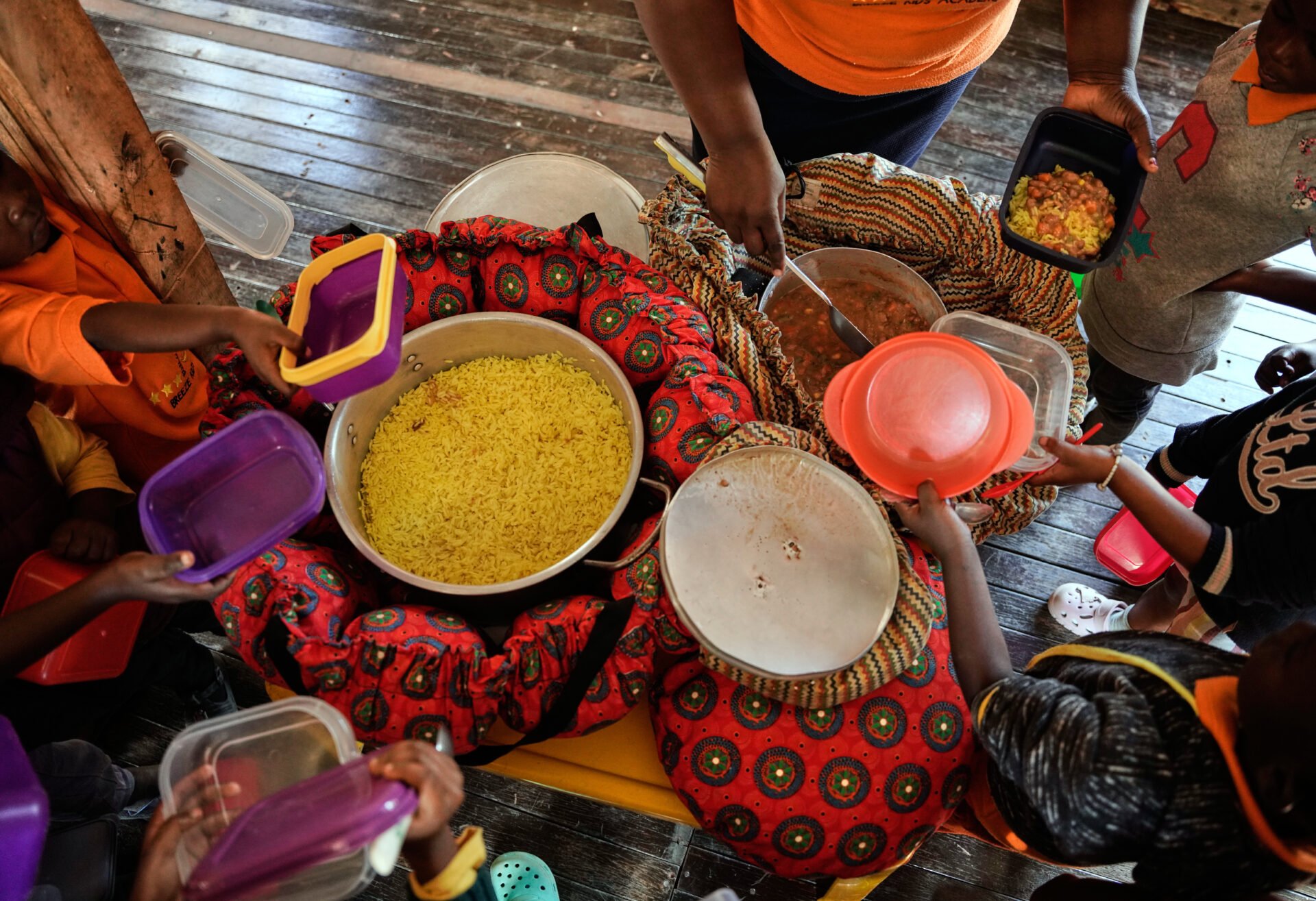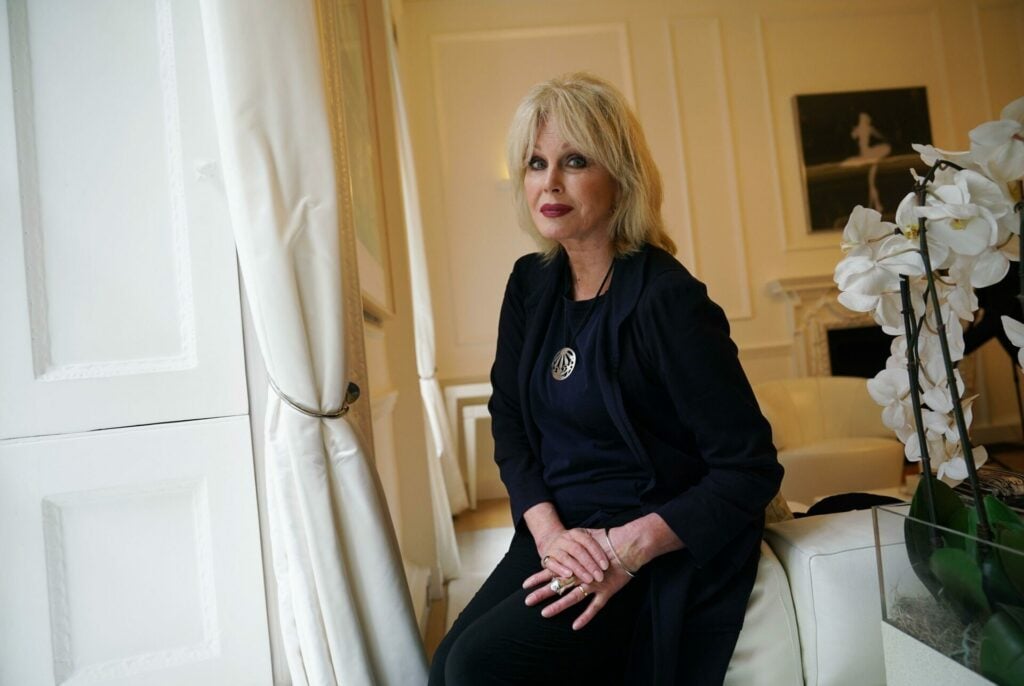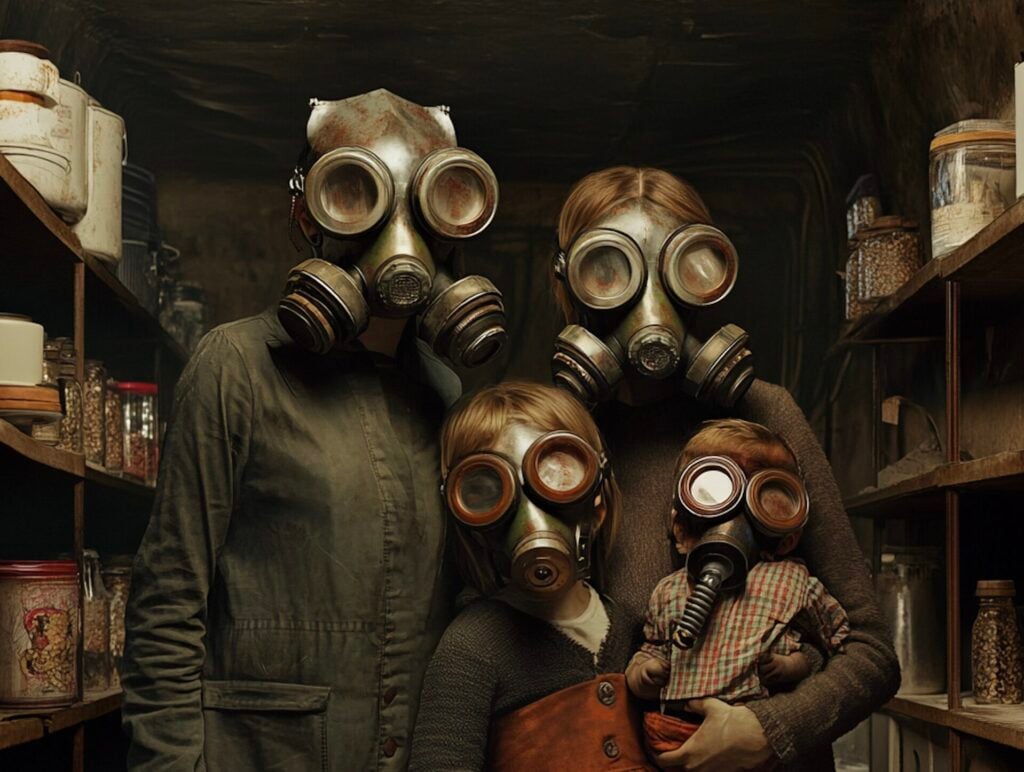Stepping into the temporary holding camp on the Jordanian side of the Syrian border, Sarah Collins was struck by the smell of burning wood and the sight of women huddled over small, makeshift stoves. The air was thick with smoke, and the haunting cries of hungry children echoed through the derelict buildings now brimming with refugees. It was 2012, the height of the Syrian Civil War, and the devastation was palpable, but amid the chaos Sarah saw an opportunity to help.
Armed with nothing more than a simple, handmade, insulated slow cooker that she called the Wonderbag, the South African social entrepreneur was about to demonstrate the power of innovation in the face of adversity.
‘The conditions were beyond anything I could have imagined,’ Sarah recalls. ‘Children were dying due to lack of sanitation; there was no infrastructure, no water – there was simply nothing. It was a sharp introduction to the horrors of war. Women with starving babies were desperately trying to cook a meal on a single gas cylinder with whatever scraps they could find, and this one cylinder provided fuel for a room shared between four large families.’
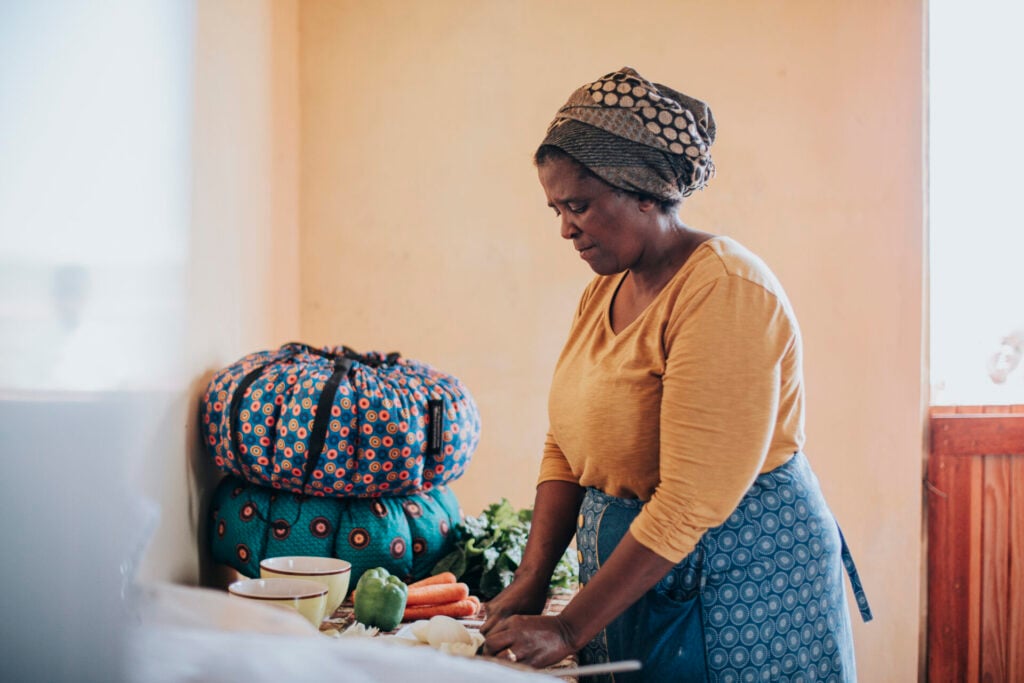
This meant there was never enough fuel, forcing the families to ration it. Often they didn’t have enough to fully cook the meals but ate them anyway as they were all hungry even though the raw food made them ill. This created tension among families, adding to the already stressful living conditions.
‘Suddenly, they could bring their food to a boil on the gas cylinder and then continue cooking it in the Wonderbag,’ Sarah says. ‘Their gas cylinders started lasting a week instead of just a few days. It was a game changer.’
The Wonderbag, a simple yet revolutionary cooker that slowly cooks food without the need for fuel or energy, was originally designed by Sarah in 2008 to reduce harmful indoor air pollution in rural African communities. Since its creation it has become a vital tool in humanitarian crisis zones where, often, access to fuel is limited.
By the age of 14, Sarah had already been jailed for protesting apartheid. ‘I grew up really angry,’ she admits. ‘I never wanted another girl to feel as disempowered as I did.’
By using insulation technology, the Wonderbag traps heat after the food has been brought to the boil on a traditional stove. Once the pot is placed inside the Wonderbag, it retains the heat and continues to slow-cook the food for up to 12 hours without any additional energy. This method saves fuel, limits air pollution from smoke, and offers a lifeline to those living in the midst of chaos with little access to cooking devices.
World of Contrasts
Sarah’s drive to make a difference began long before her time in Syria. Living in apartheid South Africa, she witnessed the stark inequalities that defined her world.
‘I grew up in a very colonial household, but my heart was with the Zulu ladies who helped raise me,’ she says. ‘I couldn’t understand why their children, who were my friends, weren’t allowed to have sleepovers at my house, yet I could sleep in their huts. It was a very confusing time.’
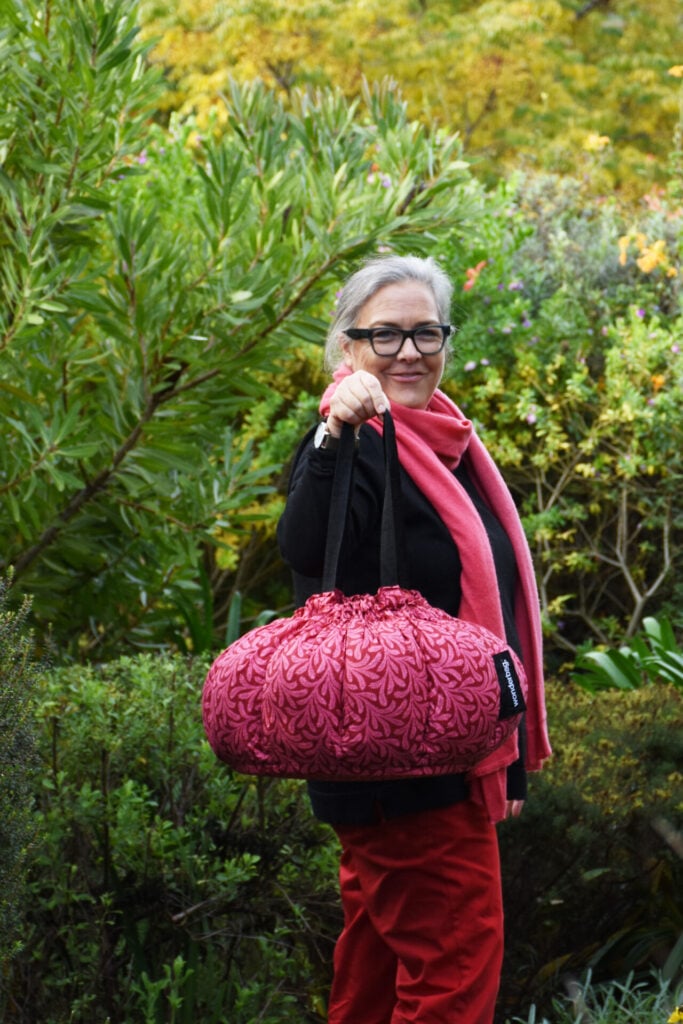
This early exposure to injustice fuelled a lifelong commitment to social activism. By the age of 14, Sarah had already been jailed for protesting apartheid. ‘I grew up really angry,’ she admits. ‘I never wanted another girl to feel as disempowered as I did.’
‘Diseases related to this indoor air pollution – respiratory infections, chronic lung diseases and eye conditions – are the biggest killers in the world. They kill seven million people every year, and 50 per cent of those are children under the age of five’
With a fierce passion for social justice, she began working with charities to educate women about HIV, and it was on these rural outreach visits that she first encountered the devastating impact of indoor air pollution. Witnessing firsthand how millions of African families were exposed to harmful smoke from cooking indoors with wood, charcoal, or dung, Sarah was inspired to find a solution.
‘Diseases related to this indoor air pollution – respiratory infections, chronic lung diseases and eye conditions – are the biggest killers in the world,’ she explains. ‘They kill seven million people every year, and 50 per cent of those are children under the age of five.’
In 2008, during one of South Africa’s now-familiar bouts of load shedding – planned power outages used to relieve pressure on the national grid – Sarah had a lightbulb moment. ‘I woke up in the middle of the night and remembered that in the 1970s my grandmother had a box with cushions in it in her kitchen which she used to keep food warm and continue cooking even when there was no power. I thought, “Heat retention cooking!”’
She tested the concept by placing a previously boiled pot of vegetables on the sofa, covering it with cushions, and waking up to a perfectly cooked stew. The Wonderbag was born – a simple, non-electric slow cooker that could reduce the need for constant firewood collection and drastically cut down on smoke-related illnesses.
Fast forward to today and the Wonderbag is transforming women and girls’ lives across Africa. By saving up to 1,300 hours a year previously spent gathering fuel and cooking, it allows women to pursue education, economic opportunities, and activities. Breaking the cycle of time and financial poverty.
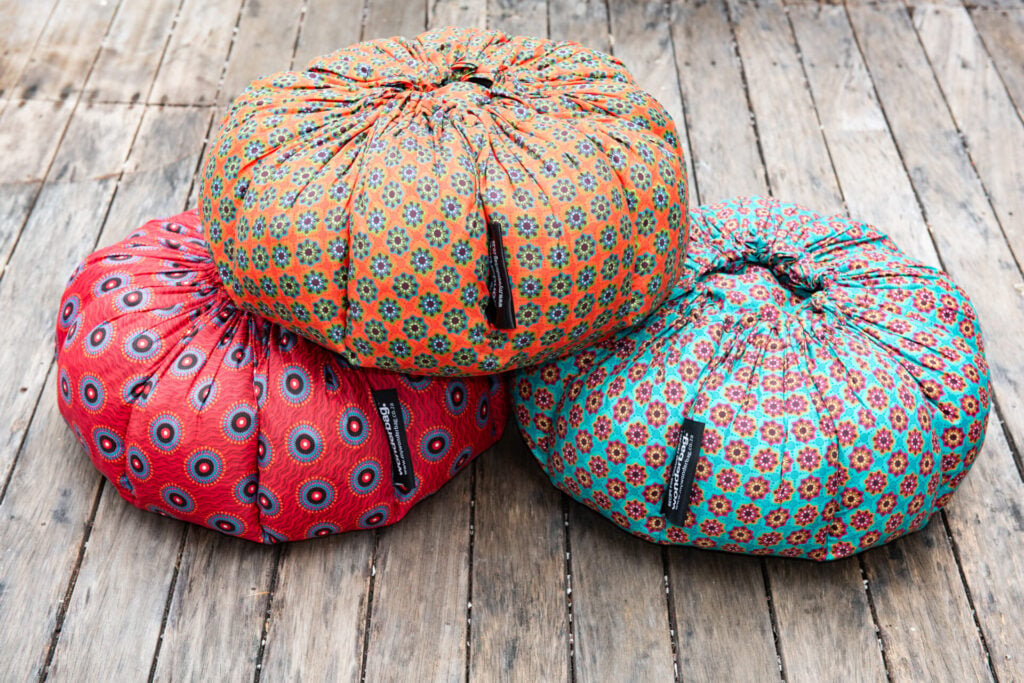
Girls are able to attend school, increasing their earning potential and reducing vulnerability to gender- based violence while out collecting firewood. The Wonderbag creates jobs thanks to sewing collectives that provide women with work to make the bags, while others are inspired to start their own small businesses, such as selling hot food at markets.
‘I knew right from the start that this was going to change my life, the lives of others and change cooking – for the good – in the humanitarian space ’
But it’s not just in her native South Africa that the Wonderbag, which was voted one of the world’s Top 50 Genius Companies by Time magazine in 2018, is providing solutions. Since its inception in 2008, over 3.5 million Wonderbags have been produced and distributed worldwide, reaching 90 countries, including war zones such as Ukraine and Palestine.
‘I never expected that it would grow to this extent,’ Sarah admits. ‘But everywhere in the world, people understand it. Heat retention cooking has been around for hundreds of years, making it a very instinctual way to cook, so it doesn’t require huge behavioural changes. I knew right from the start that this was going to change my life, the lives of others and change cooking – for the good – in the humanitarian space ’
Carbon Credits
The Wonderbag is also making a huge environmental impact. Currently, 2.5 billion people worldwide rely on fuels like wood, coal, gas, and dung for cooking, contributing to harmful carbon emissions and deforestation. Each Wonderbag can cut fuel use by 70 per cent, save five trees annually, and reduce emissions by one tonne each year. It is also made from repurposed foam insulation for the interior, helping divert material from landfill where it takes years to rot.
These environmental benefits have earned the Wonderbag numerous accolades including recognition from The United Nations Framework Convention on Climate Change (UNFCCC) as a significant tool for reducing carbon emissions. It was also featured in the Global Cleantech 100 list, which highlights innovative companies working to tackle environmental issues, and it won the Africa Energy Award for Innovation for its groundbreaking approach to sustainable cooking solutions.
‘We used Wonderbags in community-based kitchens near markets to stop people from having to walk too far amidst the constant bombardments. The Palestinian people are probably some of the most – if not the most – resourceful people on the planet. Everyone wanted to help.’
These successes also allowed Sarah to secure carbon credits, funding that rewards projects reducing carbon emissions. These credits help subsidise the Wonderbag, making it affordable and accessible to communities in need.‘There’s no point in offering a Wonderbag at $25 (AED 100) when the people who need it the most can’t afford it,’ she says. ‘Carbon credits support the people most affected by climate change. Those people are women in the Global South, and my specific realm was Africa, where 100 million households are subject to climate disasters, droughts, floods, and diminishing fuel resources.’
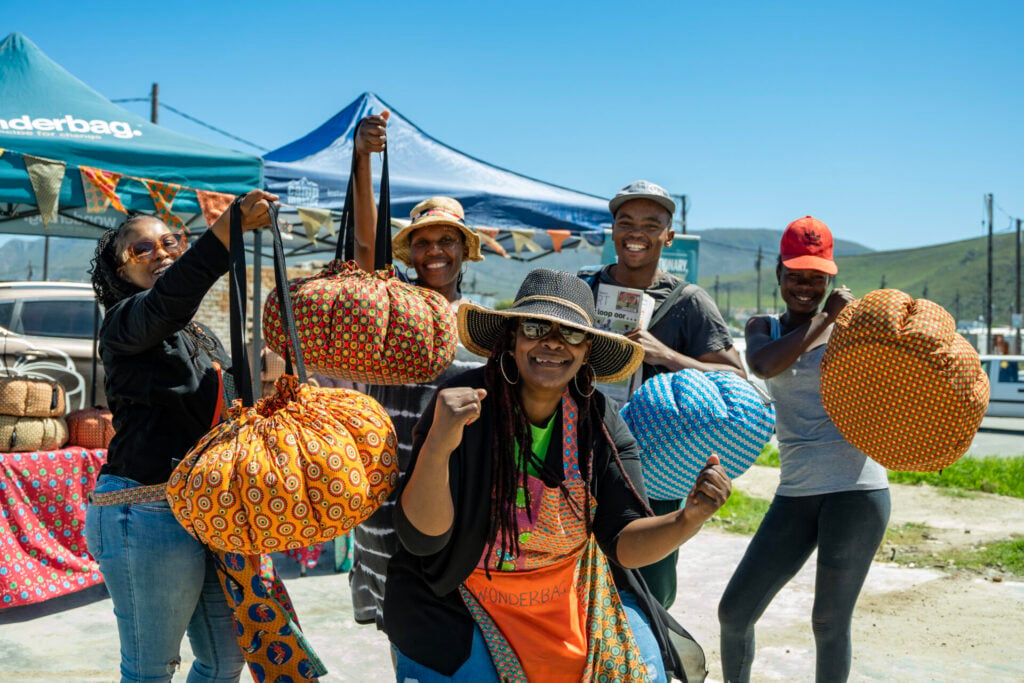
‘Thanks to carbon credits, I have been supporting the Wonderbag and getting them to the people who need them the most, at a price they can afford which is usually 1 US cent (AED 0.037), or a potato, or quite often, simply their time [by helping the team].’
Helping Gaza
Sarah visited Gaza last year, where she was assisting in the ongoing humanitarian crisis that has unfolded since October 2023. Responding to the urgent need for cooking solutions in a place where fuel and electricity were scarce, Sarah collaborated with the World Central Kitchen to introduce the Wonderbag. ‘The challenge was that there’s no cooking fuel, no electricity, gas, or propane. Nothing was being allowed in, so we had to find alternative ways to cook,’ she explains.
Using large woodchip burners and 200-litre pots, they would bring food to a boil before placing it into Wonderbags, where it continued cooking without fuel. This method not only quadrupled the amount of food they could prepare but also allowed them to transport hot meals in trucks to areas further north, where the need was greatest.
‘We used Wonderbags in community-based kitchens near markets to stop people from having to walk too far amidst the constant bombardments,’ she says. ‘The Palestinian people are probably some of the most – if not the most – resourceful people on the planet. Everyone wanted to help.’
Sarah’s work has taken her from the devastastation of Gaza and Syria to the most rural areas of Africa, but her mission remains the same: to empower women and provide sustainable solutions that improve both lives and the planet. As she continues to push boundaries, Sarah proves that sometimes, the most powerful change can come from the simplest of ideas.

